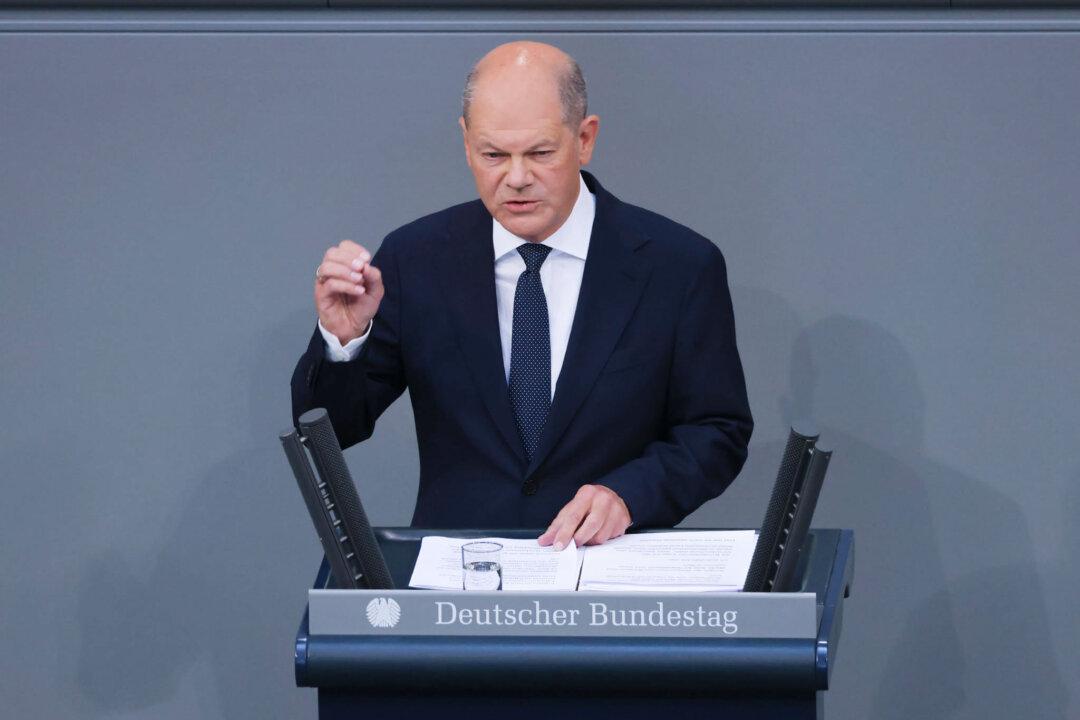German Chancellor Olaf Scholz’s Social Democratic Party (SPD) has narrowly beaten the right-wing Alternative for Germany (AfD) in a tight electoral race in the east German state of Brandenburg.
The center-left SPD, which has governed Brandenburg since the fall of the Berlin Wall, won the election with 30.9 percent of the vote, while the AfD got 29.2 percent of the votes, according to provisional official results by the State Electoral Commissioner.The left-wing nationalist, populist, Eurosceptic, and socially conservative Sahra Wagenknecht Alliance party came third, winning 12 percent of the vote.
Three-quarters of those who voted for the SPD did so to fend off the AfD, according to the exit poll published by broadcaster ARD, in the election with a record turnout of 72.9 percent.
Growing Political Force
With Brandenburg being Scholz’s home state, a loss would also have personally weakened the chancellor, who is presiding over a coalition in federal government that includes the Greens and Free Democratic Party.Whilst AfD fell short of victory, the number of votes still shows it is a growing political force, especially in the east, where analysts say national political trends first emerge.
On Sept. 1, the AfD won the state election in Thuringia. In neighboring Saxony, it lost by a small margin but still secured more votes than any three parties in the federal government.
Speaking to The Epoch Times before the results, Richard Schenk, a research fellow at the think tank MCC Brussels, said an SPD loss would have had “huge ramifications.”
Sahra Wagenknecht Alliance
Schenk said that while people are generally content with the state government, the federal government is seen as highly unpopular.“Only 14 percent of people in all of Germany say that the government is doing its job well,” Schenk said.
He said that energy issues and immigration concerns resonate with Brandenburg’s rural population.
AfD
AfD leaders have called for strict border controls and a reduction in illegal immigrants. The party has also pushed for preserving what it sees as traditional German culture and says that “Islam does not belong to Germany.”The policies also include opposition to climate action agendas and critiques of EU integration.
While immigration control is largely under federal jurisdiction, local governments and police can still influence migration through measures such as targeted controls and reduced assistance to asylum seekers.
Under the German electoral and political system, absolute majorities are less common, meaning coalition governments are often formed as a result.
In response to AfD’s earlier success in Thuringia—where it gained a relative but not absolute majority—Scholz urged other parties to block the AfD from governing. The party has since been unable to form a coalition.
Domestic security services have treated the main AfD as a potentially extremist party since 2021, granting security services the right to keep it under surveillance. However, the party denies that it is extremist.






